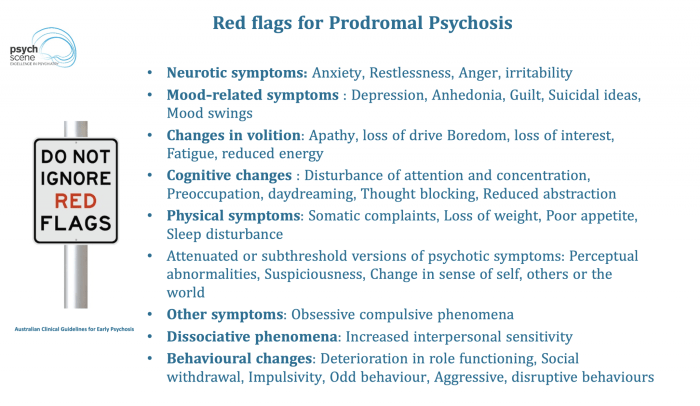Psychopath free 30 red flags – In the realm of human behavior, the concept of psychopathy has captivated minds for centuries. Psychopath Free: 30 Red Flags to Watch Out For delves into the enigmatic world of psychopathy, offering a comprehensive exploration of its defining traits, interpersonal dynamics, and potential origins.
As we embark on this journey, we will uncover the manipulative tactics, emotional detachment, and grandiose self-perception that characterize psychopathic individuals. By shedding light on these warning signs, we empower ourselves to recognize and safeguard ourselves from the potential harm they may inflict.
Personality Traits

Psychopaths are characterized by a constellation of personality traits that distinguish them from neurotypicals. These traits include superficial charm, pathological lying, and a complete lack of empathy.
Psychopaths often present as charming and charismatic individuals. They are skilled at manipulating others and can easily gain their trust. However, behind this facade lies a cold and calculating mind.
Emotional Detachment
Psychopaths are emotionally detached from others. They lack empathy and have difficulty understanding the emotions of others. This detachment allows them to act without remorse or guilt.
Cognitive and Behavioral Patterns: Psychopath Free 30 Red Flags

Psychopaths exhibit distinct cognitive and behavioral patterns that set them apart from others. They display a manipulative and deceitful nature, often employing charm and charisma to gain trust and exploit others for their own gain. Psychopaths also exhibit impulsive and reckless behaviors, acting without regard for consequences or the well-being of others.
Additionally, they possess a grandiose sense of self-worth and entitlement, believing themselves to be superior and deserving of special treatment.
Manipulative and Deceitful Nature
Psychopaths are skilled manipulators, using their charm and charisma to gain trust and influence others. They may present a charming and charismatic facade, making them appear trustworthy and likeable. However, their intentions are often self-serving, and they will not hesitate to deceive or exploit others to achieve their goals.
Psychopaths may lie, cheat, or engage in other forms of deception to gain an advantage or avoid responsibility. They may also use emotional manipulation to control or influence others, playing on their fears or insecurities to get what they want.
Impulsive and Reckless Behaviors
Psychopaths often exhibit impulsive and reckless behaviors, acting without regard for consequences or the well-being of others. They may engage in dangerous or risky activities, such as speeding, driving under the influence, or engaging in unprotected sex. Psychopaths may also be prone to violence, either physical or verbal, and may react aggressively to perceived threats or slights.
Among the 30 red flags of a psychopath, you’ll find manipulation, pathological lying, and a lack of empathy. These traits can be challenging to spot, but they’re crucial to recognize for your own well-being. To delve deeper into the complexities of human behavior, consider exploring the peptic ulcer hesi case study , which sheds light on the interplay between psychological factors and physical health conditions.
By understanding these red flags and the nuances of human behavior, you’ll gain valuable insights into safeguarding your mental and emotional health.
Their impulsive and reckless behavior can put themselves and others at risk, and can lead to negative consequences such as legal problems, financial ruin, or physical harm.
Grandiose Sense of Self-Worth and Entitlement
Psychopaths typically possess a grandiose sense of self-worth and entitlement. They believe themselves to be superior to others and deserving of special treatment. Psychopaths may exaggerate their abilities, accomplishments, or importance, and may seek constant admiration and attention. They may also have a sense of entitlement, believing that they are owed certain privileges or favors simply because they are who they are.
This grandiose sense of self-worth and entitlement can lead to arrogance, condescension, and a lack of empathy for others.
Interpersonal Relationships

Psychopaths possess an uncanny ability to charm and manipulate others. They use their charisma and superficial charm to gain trust and exploit people for their own personal gain. Psychopathic relationships are often characterized by a parasitic and predatory nature, where the psychopath takes advantage of their partner’s vulnerability and weaknesses.
Psychopaths are masters of deception and manipulation. They can easily adapt their behavior to fit the needs of the situation, making them appear charming, caring, and trustworthy. However, behind this facade lies a cold and calculating mind that is driven by self-interest and a lack of empathy.
Intimidation and Violence
Psychopaths often use intimidation and violence to control and dominate others. They may use physical violence, threats, or emotional abuse to instill fear and compliance. Psychopaths are often skilled at exploiting the weaknesses and vulnerabilities of their victims, making them more susceptible to manipulation and control.
Social and Environmental Factors
The development of psychopathy is a complex interplay between genetic and environmental factors. While genetics play a role, it is the combination of biological predisposition and environmental influences that shape the manifestation of psychopathic traits.
Childhood Experiences and Trauma, Psychopath free 30 red flags
Early childhood experiences, particularly those involving abuse, neglect, or trauma, can significantly contribute to the development of psychopathic traits. Children who experience such adverse events may develop coping mechanisms that involve emotional detachment, lack of empathy, and manipulative behaviors, which are characteristic of psychopathy.
Societal Norms and Cultural Values
Societal norms and cultural values can influence the expression of psychopathy. In cultures that emphasize individualism, competition, and a lack of social support, psychopathic traits may be more prevalent. Conversely, in cultures that prioritize collectivism, empathy, and cooperation, psychopathic tendencies may be less common.
Diagnosis and Treatment

Diagnosing psychopathy can be challenging due to its lack of clear physical or behavioral markers. Psychopaths often blend into society, appearing charming and charismatic while concealing their underlying manipulative and antisocial tendencies. Furthermore, they may be skilled at mimicking emotions and behaviors that are expected of them, making it difficult to distinguish them from non-psychopaths.
Limitations of Current Treatment Options
Treatment options for psychopathy are limited and often ineffective. Traditional therapeutic approaches, such as talk therapy or counseling, have shown little success in changing the core traits of psychopathy. Psychopaths often lack empathy, remorse, and the ability to form meaningful relationships, making it difficult for them to engage in therapeutic processes that rely on emotional connection and self-reflection.
Ethical Considerations
The treatment of psychopaths raises complex ethical considerations. Some argue that psychopaths cannot be held responsible for their actions due to their inherent lack of empathy and remorse. This view suggests that treatment should focus on protecting society from their harmful behavior rather than attempting to rehabilitate them.
Others believe that psychopaths should be held accountable for their actions and that treatment should aim to reduce their antisocial behavior and promote their integration into society.
Query Resolution
What is the difference between a psychopath and a sociopath?
While both terms are often used interchangeably, sociopathy is considered a less severe form of psychopathy, with individuals exhibiting more impulsive and reckless behaviors.
Can psychopaths be treated?
Treatment options for psychopathy are limited, as individuals often lack remorse or motivation to change. However, therapy may focus on managing behaviors and reducing the risk of harm to others.
Are all psychopaths violent?
No, not all psychopaths are violent. However, they may exhibit a lack of empathy and remorse, which can lead to manipulative and harmful behavior.